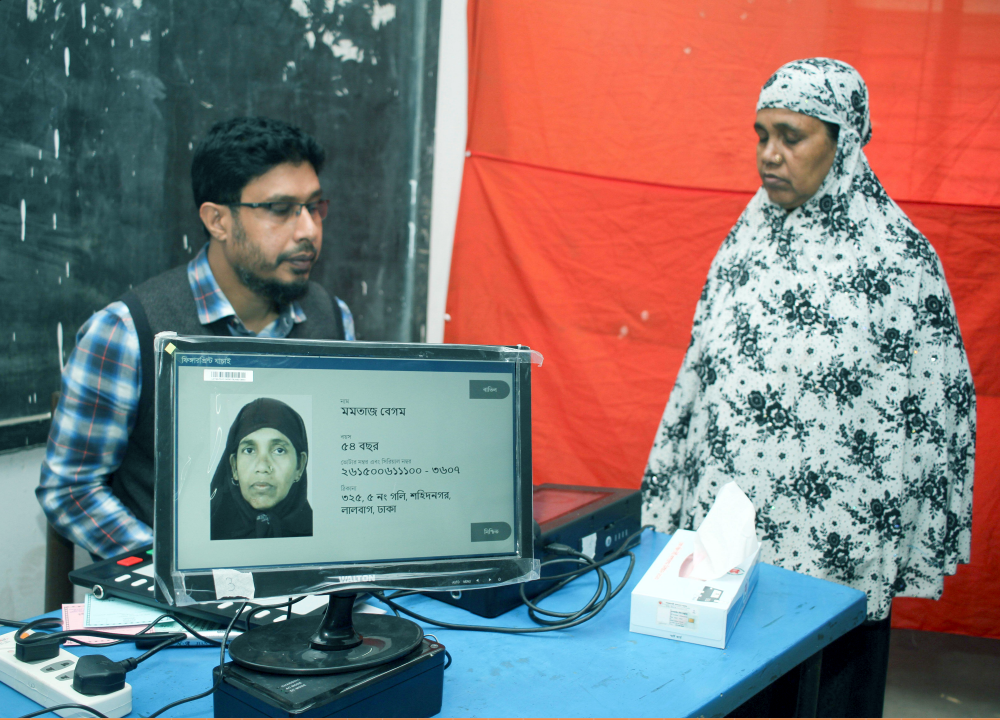An election without voters
The Dhaka City Corporation elections may have been relatively unrigged, but it was far from free or fair, and the government directly intervened to stop observers.

There were no disappearances of key opposition leaders and activists, no eve-of-poll detentions of BNP polling agents, and no ballot box stuffing by Awami League activists. To that extent the Dhaka City Corporation elections, which resulted in victories for both the AL mayoral candidates, could well be described as one of the fairer elections held under the AL government in 11 years.
That is not saying too much. Ruling party activists still occupied many polling centres with opposition polling agents and activists turfed out; voters experienced pressure inside the centres, and sometimes even inside the polling booths, to vote for AL candidates; and, the ability of presiding and returning officers to access the electronic voting system raised questions about the integrity of the system. This was no free and fair election.
Nonetheless, the giveaway that this was a less-rigged election is in the low voter turnout, with official figures showing that less than 30% of Dhaka city’s electorate voted. If there was systematic rigging, then the levels would have been much higher. In the December 2018 election, systematic ballot stuffing by AL activists all over the country resulted in an average turnout of over 80%.
The government did apparently consider undertaking more systematic rigging. According to AL insiders, intelligence agencies warned the prime minister that the BNP might do better than expected in the city polls, and to ensure an Awami League victory it was suggested that election officers be permitted an even greater ability to access and override the EVM system. This idea was eventually rejected.
However, the prime minister did make one extraordinary intervention.
On January 30th, a day before the poll, the Election Commission (EC) wrote a letter to the police and other election officers. It read, “[The commission] has given its permission to a total of 74 officials (46 foreigners and 28 local staff) of embassies and high commissions in Dhaka to act as elections observers. […] Take necessary measures to ensure security for these election observers.”
There was nothing controversial or unusual about this instruction. Embassy officials including local staff have been given accreditation as observers in all previous elections, including the last national and previous city corporation elections. Local embassy staff are essential to election observer teams as most diplomats do not speak Bengali.
However, on the day before the elections, the foreign ministry sent a note to all embassies stating: “The ministry understands that certain missions are forming teams of election observers to visit different polling booths on the day of the poll. In this connection, the ministry would like to point out that according to the ‘Guidelines for Foreign Election Observer 2018’ no local employee of a foreign mission having Bangladeshi nationality is eligible to observe the election as an international observer.”
The foreign ministry letter went onto request that “diplomatic missions in Dhaka do not include their local employees who are Bangladeshi nationals in teams for observing the upcoming Dhaka City Corporation elections.”
Early in the morning on the day of the election, the prime minister herself doubled down on the alleged rule breaking by foreign embassies, “How could the EC accept it? The code of conduct clearly says that the foreign observers should be foreign nationals. They have not done it right.”
However, both the foreign ministry and the prime minister are wrong. The 2018 “Guidelines for election observation (for international observers)” are on the EC website and do not even mention local embassy staff let alone prohibit local employees of foreign missions from observing elections as part of embassy teams. The foreign ministry and the prime minister directly intervened in the city corporation elections, preventing at least 28 accredited election observers from monitoring the polling centres.
The prime minister went even further that morning, making provocative remarks questioning the bona fides of Bangladeshis working at foreign embassies, “There are some hostile people among them. Maybe some of them had their fathers involved in the assasination in 1975 [of Sheikh Mujibur Rahman and his family] or were against the independence of the country. Maybe they committed the genocide during the liberation war. Now their children work in diplomatic missions and have their names registered as observers.”
These are of course absurd allegations and there is no shred of evidence to support these claims, but defining people as enemies of the Awami League or Bangladesh itself is the go-to nationalist rousing strategy whenever the party wants to divert an argument. It also goes to show how supine the foreign embassies are in Bangladesh that they have issued no public response to these claims.
However, perhaps the most important takeaway from the elections is how poorly the BNP did. The low turnout shows that its supporters and sympathisers were simply not willing to come out in large numbers to vote for the party. This may be in part because they have little confidence in the BNP itself as an alternative party of government, but it is also because the supporters have even less confidence in elections. AL’s election manipulations starting from 2011 when it got rid of the caretaker government system has created such distrust in the system of voting that many people have no faith in it, and see no value in going out to vote. However, the irony is that in this relatively unrigged election, had BNP supporters actually come out in large numbers, they might well have won.●
David Bergman (@TheDavidBergman) — a journalist based in Britain — is Editor, English of Netra News.